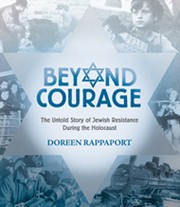Readers of John Boyne’s The Boy in the Striped Pajamas may have high expectations of this new novel. They will not be disappointed, but they may be disturbed along the way. The narrative opens in 1936 Paris with the introduction of seven-year-old Pierrot, the only child of a German World War I veteran and his French wife. Pierrot is small for his age and is bullied. His best friend is Anshel Bronstein, who lives in the same apartment building with his widowed mother. Anshel is hearing-impaired and he and Pierrot develop their own language.
Within the year, Pierrot is orphaned and sent to Orleans to an orphanage, but Anshel’s mother alerts Pierrot’s paternal aunt, who sends for him to come to Austria, where she serves as housekeeper to a volatile master.
That master, of course, is Adolf Hitler, and the home is in Berchtesgaden. At his aunt’s urging, Pierrot becomes less French, more German. He recalls the rantings of his father, who claimed the Germans were robbed of victory in the Great War. Pierrot transforms from a sweet, helpful boy to a rigid, dogmatic product of Nazi indoctrination. His transformation to Pieter is indeed disturbing. He betrays his aunt and ends his friendship with Anshel in the name of the Fatherland. By the end of the narrative, he realizes his mistakes and knows he must live with them. In a somewhat surprising yet highly satisfying twist in the epilogue, the voice of the narrative shifts.
Pierrot’s naivety is reminiscent of the main character from the Once series by Morris Gleitzman. Boyne’s ability to transform Pierrot is masterful and haunting. This is not a book a reader is likely to forget. There are some highly brutal scenes. Where Boyne has not shown sufficient attention is in his use and understanding of the German language. For example, Pierrot is given the €German” name of Pieter. But Peter in German is Peter.
Recommended for mature readers, ages 10 and up.
Barbara Krasner is the author of many books across genres, including fiction, poetry, creative nonfiction, and children’s literature. Her recent titles include 37 Days at Sea: Aboard the M.S. St. Louis, 1939, Civilian Casualties in War and Ethel’s Song: Ethel Rosenberg’s Life in Poems. Her book Goldie Takes a Stand! Golda Meir’s First Crusade was a recipient of the Sydney Taylor Honor Award. She holds a Ph.D. in Holocaust and genocide studies from Gratz College, teaches in the Holocaust and genocide studies program at the College of New Jersey, and serves as director of the Mercer County Holocaust, Genocide, and Human Rights Education Center. She also holds an MFA in writing for children and young adults from the Vermont College of Fine Arts.




